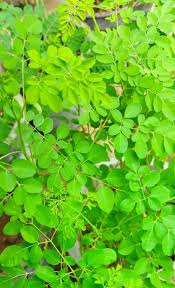Moringa:

PKM1, a variety of Moringa oleifera, has had a global impact, especially in countries such as Senegal, Rwanda, and Madagascar on the African continent.
- Moringa is known as the “tree of life” or “miracle tree,”and is classified as an important herbal plant.
- Its botanical name is Moringa oleifera, and it is native to India, which was introduced from India to Africa, Southeast Africa, and the Philippines in ancient times.
- It requires tropical and subtropical regions and grows at a temperature of about 25–35 °C
- It is a deciduous type of tree typically grown in tropical and subtropical regions across the globe
- It grows best in indirect sunlight and without waterlogging, and the soil should be slightly acidic to alkaline.
- The tree begins to bear fruit at 6 to 8 months of age.
- With its high nutritional values, every part of the tree is suitable for either nutritional or commercial purposes.
- The leaves are rich in minerals, vitamins and other essential phytochemicals.
- Extracts from the leaves are used to treat malnutrition, augment breast milk in lactating mothers.
- It is widely distributed worldwide, but its indigenous origin is in India, Arabia and the East Indies.
- It is common in Asia, Africa, the Caribbean, Latin America, the Pacific Islands, Florida, Madagascar, Central America, Cuba, the Philippines, Ethiopia, and Nigeria




